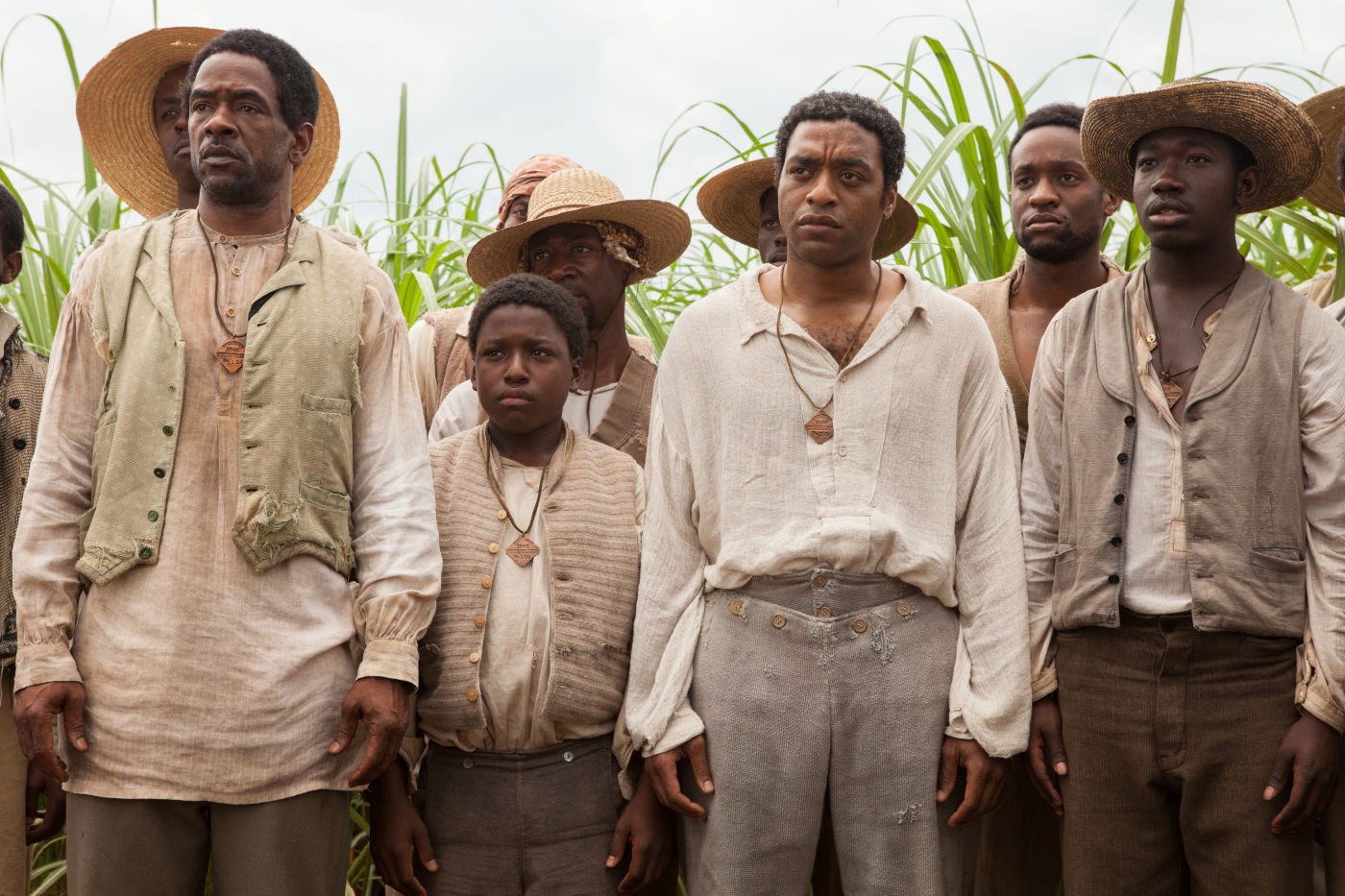By Savannah Wood
Rating: A+
Out of Hollywood’s greatest modern auteurs, no one captures the intricacies of human suffering quite like Steve McQueen. Anyone familiar with his previous two films, Hunger and Shame, knows how adept he is at conveying anguish in its most excruciating, raw form. His most recent film, 12 Years a Slave, is a sublime consummation of his most remarkable talents.
12 Years a Slave, based on the book of the same name, follows the agonizing journey of Solomon Northup (Chiwetel Ejiofor), a free black man living prosperously with his family in New York. A violin player, Solomon is given an offer to play in Washington D.C., which he accepts. Then the story turns on its head–Solomon is kidnapped by his employers, sold into slavery, and hauled away to Louisiana where he spends a torturous twelve years working the fields and property under the ownership of the sadistic Edwin Epps (Michael Fassbender–making his role as Magneto look like Gandhi). Chiwetel Ejiofor is transcendent, the miserable twelve years of physical and emotional torment seem to literally etch their way across his face. But the truly miraculous part is what lies beneath those tracts of suffering–despite every trial and tribulation, Solomon keeps a seed of hope planted and cared for. “I don’t want to survive,” Solomon says, “I want to live.” Ejiofor portrays the frustration, the longing, and the degrading pain with spectacular skill, but his real magnetism blossoms in the faith he nurtures through all those years, and the extraordinary strength it must take to keep it alive.
12 Years a Slave is not just a great film, it’s an important one. It’s one of the, if not the most, harsh, gravitational depictions of slavery I’ve ever seen. McQueen pulls the camera in close on the slaves’ gritty, stoic faces, and he lingers on shots for an eternity until you are literally squirming in your seat waiting for the relief of the cut. He makes you uncomfortable–and you’re supposed to be. 12 Years a Slave is an unapologetic and unfiltered look at the fragility of freedom, and the lengths to which our country once stooped. It’s a study in dehumanization, but also in triumph, and to watch it is a necessary discomfort that everyone needs to sit through–it’s truly a remarkable cinematic experience. I couldn’t think of a thing I would change–it gets an A+ from me.
